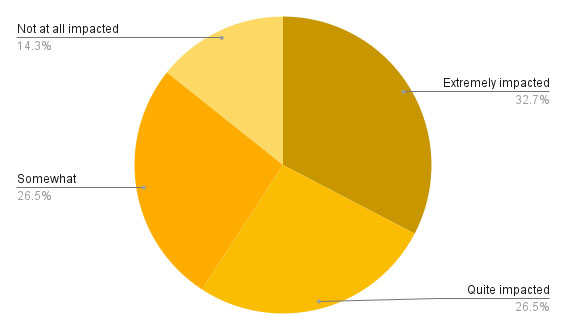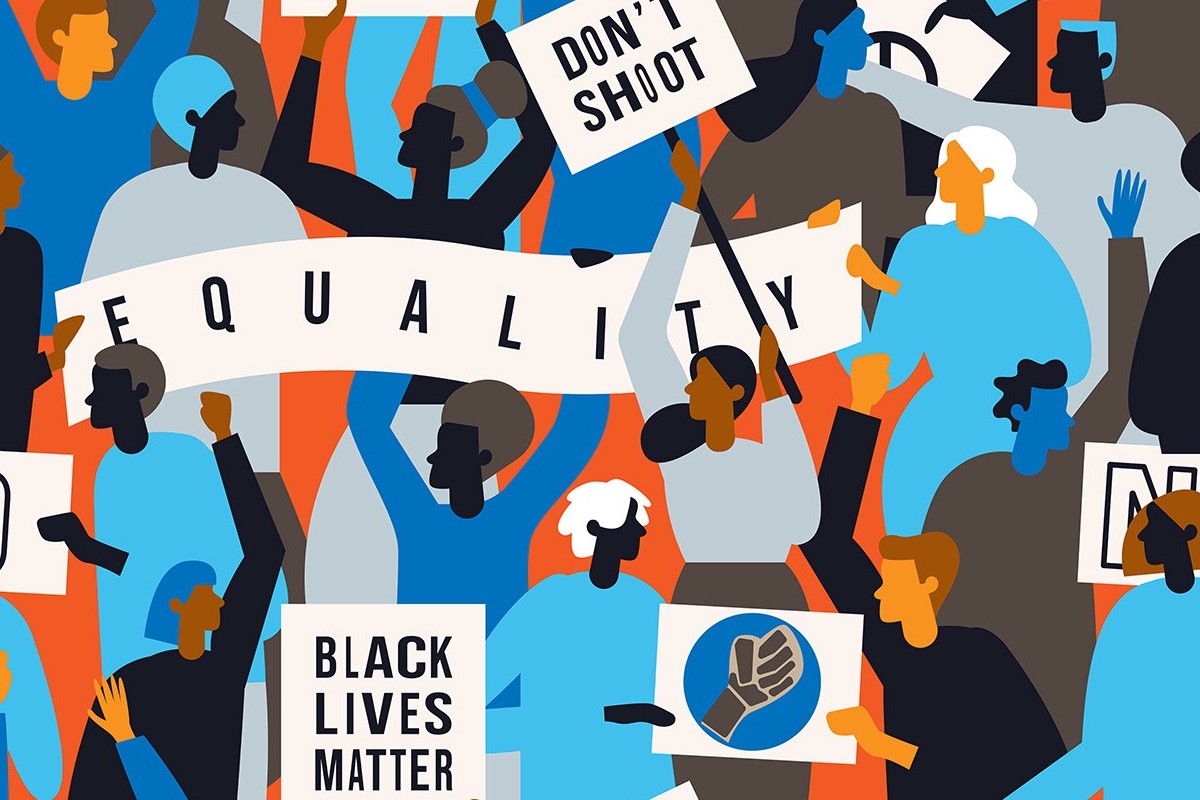A new study by the Black Education Research Collective (BERC) at Teachers College is the first of its kind to offer evidence to quantify the devastating repercussions of Covid-19 and police killings on the education of Black children in schools across the country, with a focus on six major metropolitan areas.
The long-anticipated BERC research report, Black Education in the Wake of Covid-19 & Systemic Racism: Toward a Theory of Change and Action, also offers a detailed agenda for racial equity, and what the authors call the keys to “building the trust between educational systems and Black families” to “support student safety, learning and success.”
“The research speaks to the magnification of the historic systemic failures affecting Black students, families, and communities deepened by the triple pandemics of Covid-19, the resulting economic recession, and heightened racial violence,” said Sonya Douglass Horsford, Associate Professor of Education Leadership and Director of BERC. Horsford also served as Principal Investigator of the study, leading a research team of current students, alumni and postdoctoral scholars, with whom she co-authored the report.
“It stands as further testimony to the tough conversations and critical work that awaits in the months and years ahead, and why education must be at the helm of leading change in post-pandemic America.”
[Read a New York Times report on the groundbreaking research from the College’s Black Education Research Collective.]

Sonya Douglass Horsford, Associate Professor of Education Leadership and Director of the Black Education Research Collective. (Photo: TC Archives)
In the report, researchers examined how the “triple pandemics of Covid-19, the pandemic recession and racial violence” continue “to shape Black life in America and the conditions under which Black students learn.”
During a five-month period beginning in January, BERC collected data from an online survey of 440 Black Americans in communities across the U.S and through 19 focus groups, conducted via Zoom, with 82 Black high school students, parents, school administrators and community leaders ranging in age from 14 to over 70 residing in Atlanta, Washington, D.C., Las Vegas, New York, Detroit and Boston.
This report is the first in a series of publications examining the impact of COVID-19 and systemic racism on Black education with future research briefs reporting more detailed findings from the focus groups conducted in Las Vegas, Washington, DC, New York and Atlanta.
“Participants expressed concern over the fact that schools are ill-equipped to meet the social, emotional, and academic needs of their children,” BERC reported in the study. “And that COVID-19 and increasing racial violence have revealed further their lack of capacity or willingness to meet the educational needs of Black students or expectations of Black parents.”
Figure 4: Impact of COVID-19 on Social and Economic Well-Being

MENTAL HEALTH CHECK Nearly one-third of participants indicated that Covid had negative impacts on their mental health. (Photo: Courtesy of BERC)
The study’s examination of how the pandemic has affected the education of Black students is further contextualized by key data points from the Center for Disease Control, which has found that Black Americans through the pandemic have been hospitalized at twice the rate of White Americans. Black people, proportionately, are also twice as likely to die from the virus.
As a Boston respondent told researchers: “It all feels so urgent, and it was urgent before COVID, it was urgent before Trump, so the urgency just continues to build on top of each other. This system hasn't served the well-being [of] Black and Brown folks for centuries. It just continues to be a compounding issue, and in Boston, it really just angers me at my core.”
The report outlines five areas of “significant consensus” among survey participants:
- The “disproportionate and traumatic” impact of Covid, racism, white supremacy and racial violence on Black families and communities: nearly one-third of survey respondents lost a family member, friend, or community member to Covid-19.
- About one-third of participants reported job insecurity and difficulty paying bills as a result of the pandemic (Figure 4). Nearly 60% of participants had a member of their household who was an essential or frontline essential worker working in unsafe conditions.
- The major implications of increased racial trauma and mental health issues for teaching and learning: The majority of respondents were both affected and worried about police and white supremacist violence (Figure 3 in study), the vast majority of respondents (85%) indicated their mental health and wellness was negatively impacted by COVID-19 (Figure 5).
- The erosion of trust in schools and institutions by the governmental and institutional response to Covid, police brutality, anti-Black violence and resulting uprisings, and the Jan. 6 insurrection at the U.S. Capitol.
- The inability of “ill-equipped schools” to respond to the “social, emotional and academic needs of Black students”: A majority recognized the necessity of holding educational and policymakers at every level of government accountable for ensuring the future “educational needs of Black students” are met.
To address the five areas of concern, the report recommends:
- National, state, and local initiatives to “defend the rights of Black students to receive an appropriate and equitable education in a safe, welcoming, and affirming learning environment”;
- Significant investments in counseling and mental health services to address the impact of racial trauma as part of post-pandemic education;
- Targeted investments in professional development programs that help teachers and school administrators address the “social, emotional and academic needs of Black students”;
- Modernizing curriculum, pedagogy and student assessment to affirm the academic ability of all students and prepare them for participation in civic life by teaching the truth;
- Investments to bolster and support the number of “culturally relevant educators” serving Black students, schools, and communities; and
- Restoring community trust by “engaging Black students, families, educators, researchers, and community leaders as experts and equal partners in education.”
The study, one of 20 research projects funded last summer by The Spencer Foundation out of 1,369 proposal submissions, also received funding from the Nellie Mae Education Foundation.
Founded in 2017, BERC is a consortium of TC faculty, scholars, students and alumni, focused on the crossroads where Black history, culture, politics and leadership intersect with educational research.
BERC’s report provides important insights and guidance to local school districts as they consider how to spend Elementary and Secondary School Emergency Relief (ESSER) funds that they will receive as part of the post-pandemic American Rescue Plan (ARP) Act. The report has been shared with members of Congress, policymakers and stakeholders.
“As states and local school districts conduct community input and consultation sessions across the country for their ESSER expenditures as required by ARP, it is important that the needs and interest of Black students, parents, families, and communities be among those prioritized given the resounding calls and commitments to advancing racial equity and social justice in our nation’s schools and school systems,” the authors write.
“This includes the building of a new and inclusive civic infrastructure that ensures our schools are equipped both physically and professionally to meet the needs of our ethnically and culturally diverse schools and communities.”
— Steve Giegerich
